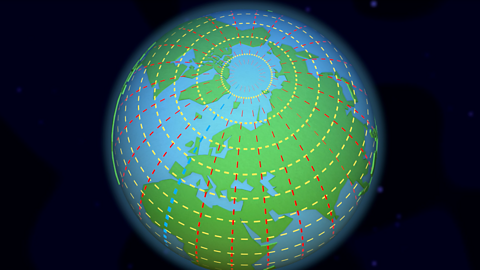Why are there time zones?
It takes 24 hours for the Earth to rotate once on its axis. We split the globe into time zones using imaginary lines called meridians. They run from the North Pole to the South Pole, crossing lines of latitude. There are 24 time zones.
There is an imaginary line running through the UK called the Prime Meridian. It runs through a place in London called Greenwich.
The Prime Meridian splits the world into eastern and western hemispheres.
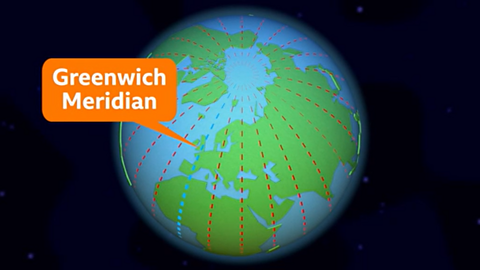
Time in countries to the east of the Prime Meridian is always in front of that in the UK.
Time in countries to the west of the Prime Meridian is always behind that of the UK.
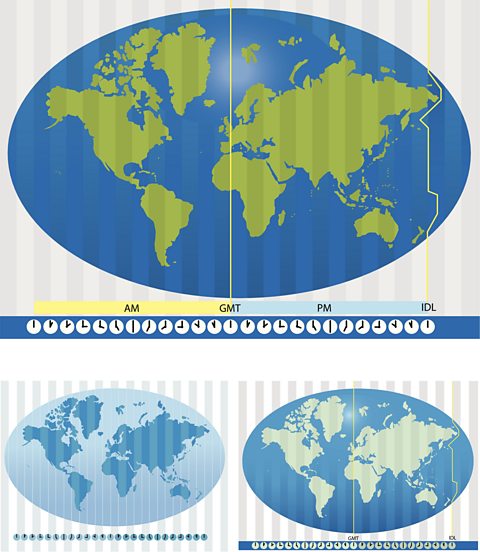
The International Date Line (IDL) is an imaginary line on the Earth's surface defining the boundary between one day and the next. Located at about 180° east (or west), it is halfway around the world from the Greenwich Meridian (0° longitude). When you cross the date line travelling east, you subtract a day, and if you cross the line travelling west, you add a day.
Watch: Time zones
Auntie Joyce: Happy Birthday Sue!
Sue Venir: Oh, err… thank you Auntie Joyce, it’s so kind of you to ring. It’s actually 11pm here on the day before my birthday, but it’s still lovely to hear from you.
Auntie Joyce: Oh sorry! I forgot about the time difference. I’ll let you sleep dear, nighty-night!
Sue Venir: Auntie Joyce always rings me very late at night. It’s because she forgets that we live on different sides of the planet.
I’m in the UK but Auntie Joyce lives all the way round the other side of the planet in Australia.
The sun is shining on her side of the Earth at the moment, which means it’s daytime there, but because I’m on the shady side of the planet, it’s night-time here.
The Earth is steadily turning on its axis all the time. Which means in a few hours, the Sun will shine on my side of the planet, making it daytime.
And her side of the planet will become shaded, making it night-time.
Because the time is different depending on where you are in the world, everyone has agreed to split the world up into time zones.
They are divided by imaginary lines called meridians which run from the North to the South Pole.
It’s 7am where Auntie Joyce is in Australia, but Uncle Fred lives in India, where it’s 4.30am.
Aunty Sandra lives in Nigeria, where it’s midnight.
And Uncle Terry lives way over in Mexico where it’s 5pm.
Anyway, if I’m to look my best for my birthday party, I’d better get some sleep.
Time in different parts of the world
As the Earth rotates on its axis, the Sun only shines on the side of the Earth that it is facing. This means:
- It is daytime for the parts of the Earth that have the Sun shining on them
- It is night-time for places that are on the opposite side of the Earth and are in the shade
Time zones are not always in straight lines on the longitudes on Earth. This is because they may need to curve around country borders. You can see this in the map below.
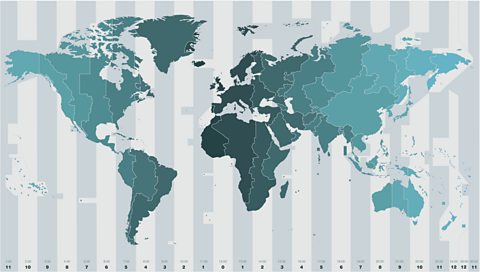

Different places in the world have different times.
This is why the world is divided into 24 different time zones. One for each hour in a day.

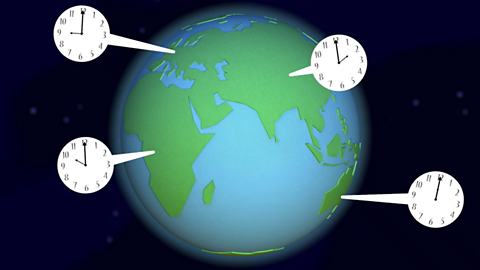
Very large countries such as Australia or the USA are spread out across many time zones.
Most smaller countries keep to the same time zone even if part of them falls outside a meridian line.
Activity: Quiz – Time zones
Bitesize Primary games. gameBitesize Primary games
Play fun and educational primary games in science, maths, English, history, geography, art, computing and modern languages.

More on Geography skills
Find out more by working through a topic
- count4 of 10
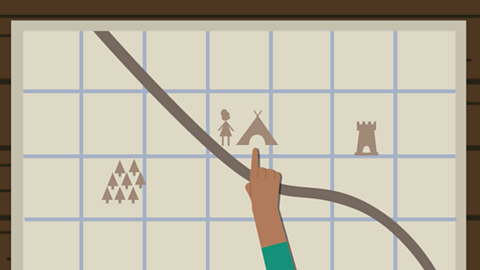
- count5 of 10
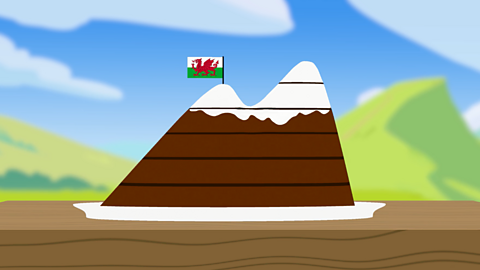
- count6 of 10

- count7 of 10
